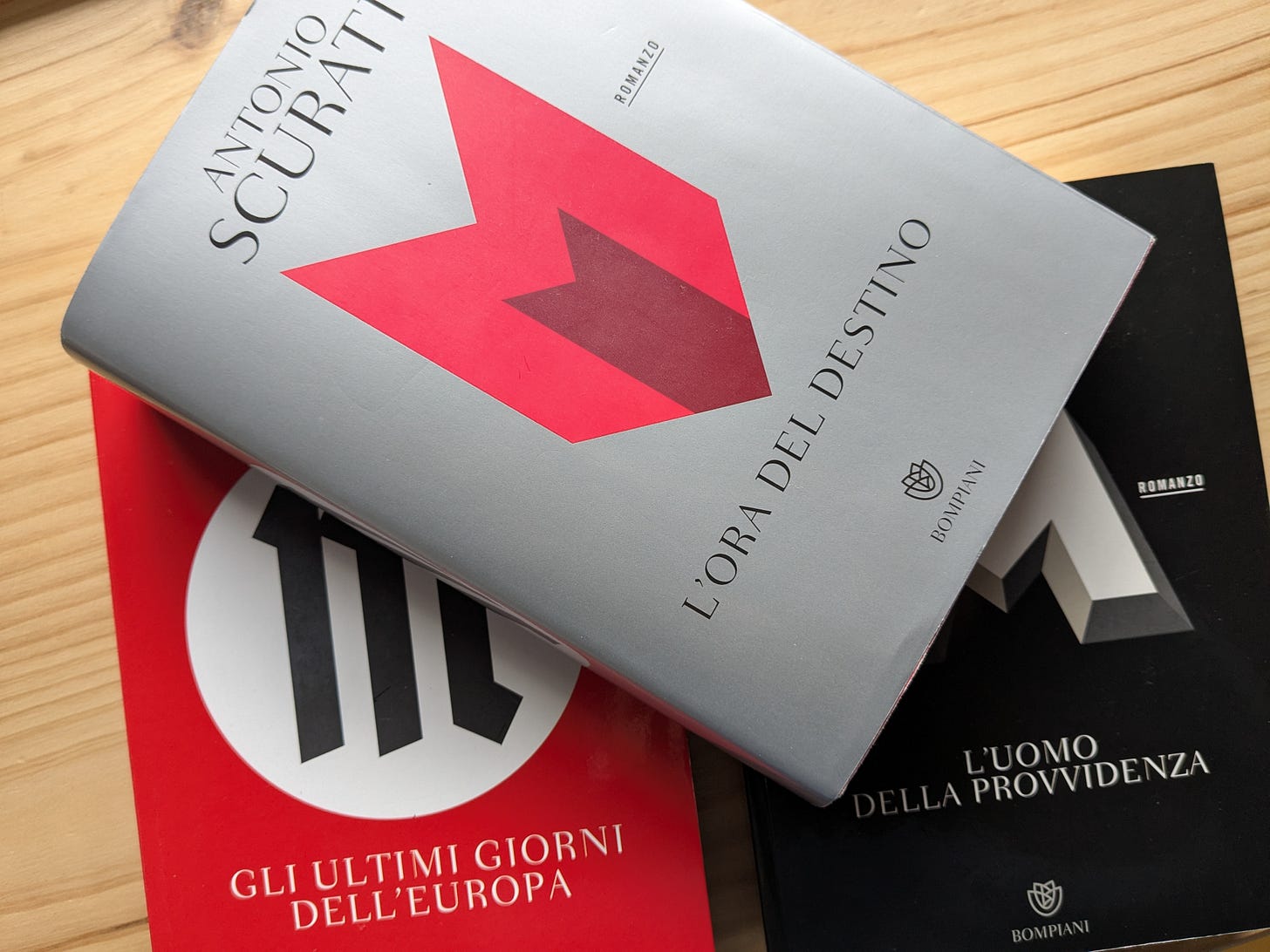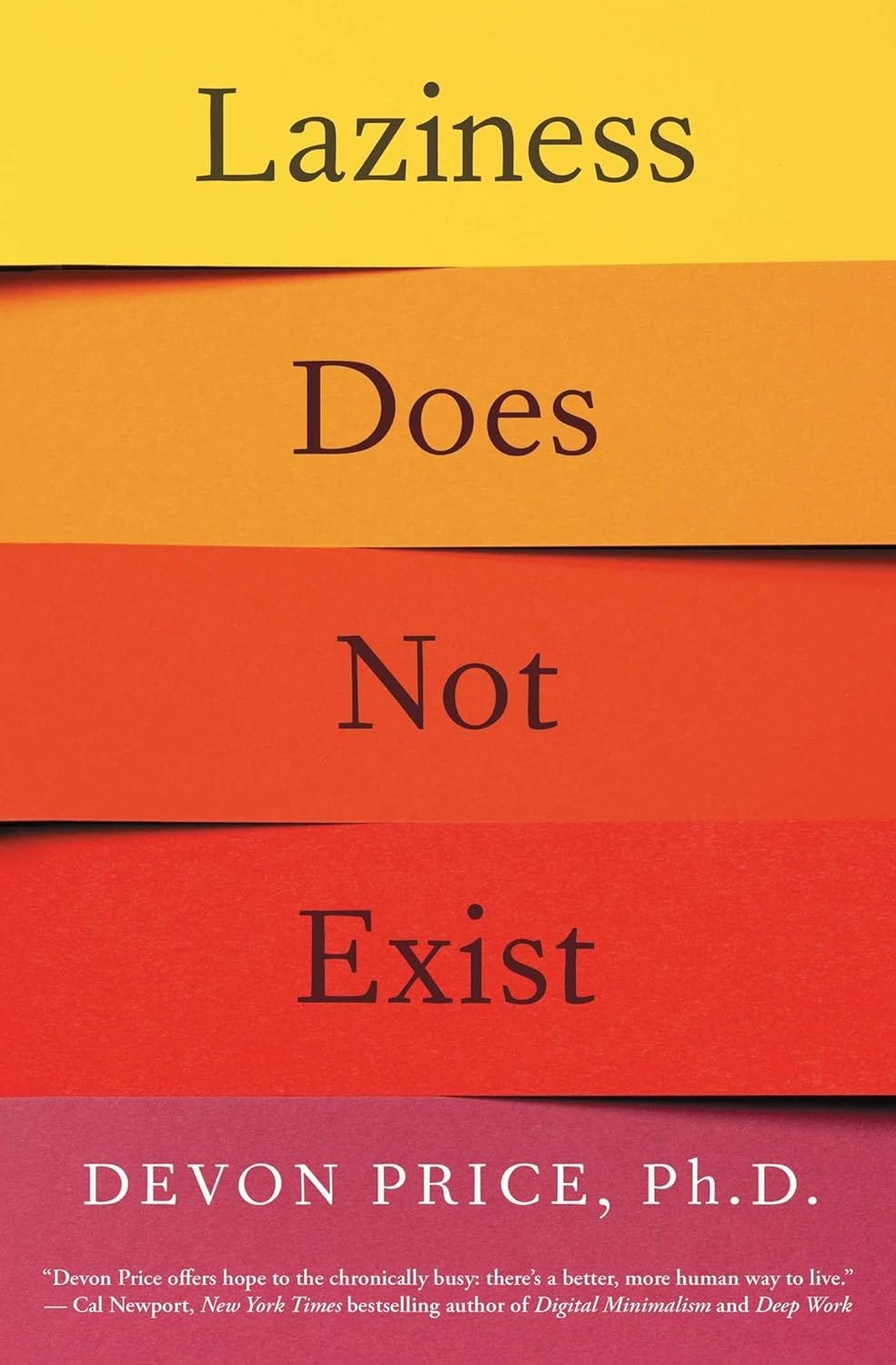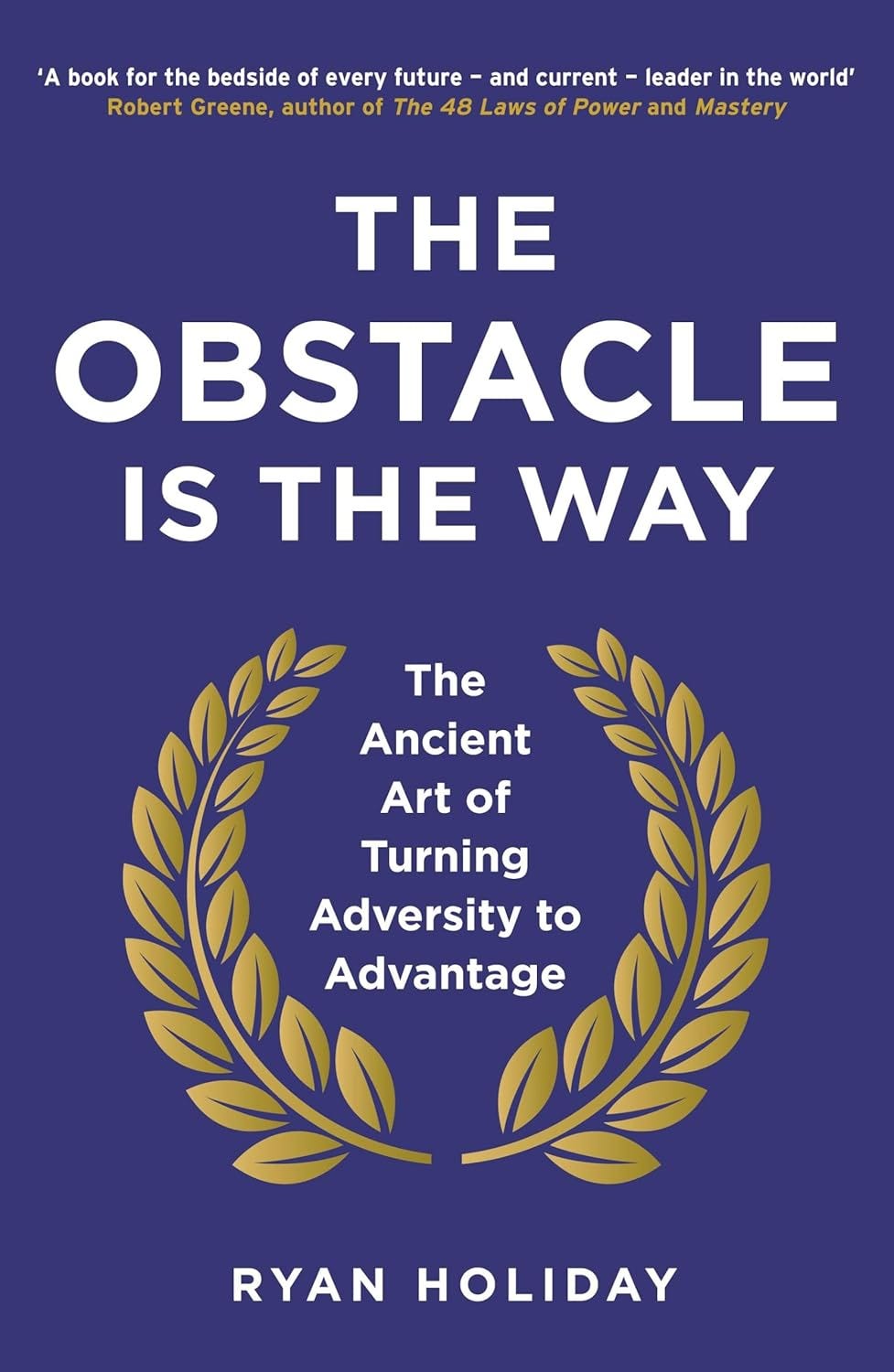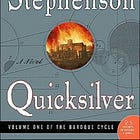📚 Books I read in December 2024 and Juanuary 2025
A good mix of highly relevant reads for anyone who'd like to better understand the world around us. History repeats itself, unless we take action to prevent it from happening!
Lemon.io (Sponsored)
This week's newsletter is sponsored by lemon.io.
Ship Software Faster with Experienced Engineers
Finding skilled developers is hard—even for seasoned engineering leaders. Traditional hiring cycles can take months while critical features sit in the backlog.
Lemon.io removes the guesswork by rigorously vetting engineers and matching you with top talent in just 48 hours.
Need to scale your team quickly or find specialized talent that's hard to source locally? We match you with developers from Europe and Latin America who integrate seamlessly into your workflow—without the long hiring cycles or commitment of long-term contracts.
Unlike other platforms, we don't just check résumés—we put developers through a rigorous multi-step vetting process that assesses technical skills, problem-solving abilities, and communication.
Start building faster with lemon.io
As I skipped the January column on the books I read in the previous month, here comes a packed issue with the books I read both in December 2024 and January 2025—lots of good recommendations for every leader out there.
I hope you'll enjoy them, and do not hesitate to share your reading suggestions!
📓M: L'uomo della Provvidenza, by Antonio Scurati
📕M: Gli ultimi giorni dell'Europa, by Antonio Scurati
📔M: L'ora del destino, by Antonio Scurati
M: L’uomo della Provvidenza by Antonio Scurati
645 pages, First Published: September 23, 2020
M: Gli ultimi giorni dell’Europa by Antonio Scurati
425 pages, First Published: September 14, 2022
M: L’ora del destino by Antonio Scurati
668 pages, First Published: October 16, 2024
Those with good memories might remember that in November, I read the first book in Antonio Scurati's series on Benito Mussolini, M: Il figlio del secolo, and loved it.1
It's not only a very accurate and researched chronicle of what happened in the first few years of fascism's ascent in Italy, but it's also beautifully written and hard to put down. It narrates the story of a person who forever changed the face of Italy and Europe.
If all those traits make it a great book, its relevance to today's sociopolitical landscape makes it a fundamental read that helps us understand what is happening around us almost exactly a century after totalitarian ideologies rose to power in a few European countries.
Willing to deepen my understanding of such a dramatic period in our history, I read the remaining three books in the series in rigorous chronological order between December and January.
Scurati is working on the fifth and last book of the series, which will be published next spring. While waiting for that last chapter on a story often glossed over in schoolbooks, here is my recap and review of volumes two, three, and four.
The second volume covers the years 1925 to 1932, during which Fascism started revealing its true nature as a dictatorship driven by today's well-known principles of far-right movements: the cult of the personality of a strong man, limits imposed on the press, violence deployed to tame political dissents and supremacy of the race.
These are the years when Mussolini survived multiple attempts against his life and came out stronger after each one of them. The years in which he concentrated all the powers on himself effectively turned the parliament into an empty shadow of the instance of democracy it was supposed to be. The years in which Mussolini's obsession with competing against other great European countries engages in multiple attempts at building an Italian colonial empire.
His ravings are greatly expressed in a long discourse he pronounced in front of the parliament on May 26th, 1927. Following his debut, "Today I won't be short", he went on a long detour on the need to take care of the physical health of the race, culminating with his desire to increase fertility so that the Italian nation would eventually be able to compete, on raw numbers, against the most populous countries in the continent:
Gentlemen! For Italy to count for something, it must enter the threshold of the second half of this century with a population of no less than sixty million!
These are also the years in which Mussolini, by concentrating all the power on himself and depriving any institution of their original intents, becomes very lonely: surrounded by followers with no real responsibility — as he takes all the decisions — only to be blamed when something doesn't go as He expected.
The third volume - Gli ultimi giorni dell'Europa - focuses on the short but intenser period between 1938 and 1940. These are the years when the relationship between Hitler's Nazi Germany and Mussolini's Fascist Italy took the semblance of the cancer that eventually dragged most military superpowers into the second world conflict.
These are the years in which the Italian regime revealed its darkest sides. Hitler, once Mussolini's disciple, became the master. Mussolini, who played the strong and powerful man at home, bowed his head and became a loyal follower of the German leader. The Germans, on their side, deployed all their strategic acumen and cynicism to drag their ally into the first stages of what would eventually become World War 2.
It's important to remember that this was happening at a time when most of the Italian population still saw the Germans as their enemies, hurting from the atrocities and the scars of the recent world conflict that saw the two countries opposing each other. Despite that, Mussolini went on to approve the infamous racial laws, which institutionalized discrimination and then repression against the Jewish population. He left the League of Nations and signed a mutual support pact with Germany.
Finally, in a discourse to the nation on June 10th, 1940, he declared war on France and Great Britain:
We enter the field against the plutocratic and reactionary democracies of the West who, at all times, have hindered our march and often threatened the very existence of the Italian people. Several decades of recent history can be summarized in these phrases: promises, threats, blackmail and, finally, as the official crowning of the edifice, the ignoble Society [League of Nations] siege b fifty-two states.
Volume 4 - L'ora del destino - covers 1940 to 1943, the heat of World War II.
It narrates the evolution of the relationship between Hitler and Mussolini, with the Germans progressively losing faith in an ally they never really trusted and the Italians becoming more and more the puppet in the hands of the obsessive leader of the Nazi party. All that was in the background of a war that started looking like an easy win for the Germans thanks to their industrial capacity and tactical approaches with quick conflicts - Blietzkrieg - in stark opposition to the lengthy and stationary nature of the First World conflict.
As the initial victories turned into significant losses, Italy witnessed the loss of its Empire, giving up most of its territories in Africa and Europe (Yugoslavia and Albania) to the Allied forces.
As the Italian nation was suffering the consequences of a prolonged conflict that was consuming all internal resources and sending all the young people to die at the front, unrest was mounting, and the once popular and undiscussed leader became the source of discontent, criticism, and blame.
These are the years in which Mussolini reaped what he saw through two decades of bad leadership. He had been infantilizing everyone in his entourage by keeping control of every critical decision. He'd always raised himself by pushing those around him down. He'd been systematically using scapegoats to take the blame for his disastrous decisions on the military and political front. He'd been practicing the perverse art of the double discourse on all fronts, particularly with the German allies: followed to death in public but blamed and criticized in private.
The results were to be expected: his closest collaborators turned into his most dangerous enemies, and they all conspired with a very weak king—Vittorio Emanuele III—to dismiss him from power. They put him into protective detention in a desperate attempt to save what little was left of the nation.
This book closes with the following image, with Mussolini sitting on the latrine, realizing that he had been abandoned by all those who promised they'd follow him:
Where are the four million Blackshirts? What is the Legion of the Militia stationed in the city doing? And the armored M Division, positioned near Bolsena, composed entirely of loyalists, organized and armed like Himmler's Waffen-SS - why isn't this armored division that bears the initial of his name moving to free him? Where have they all gone?
Impossible to tell from the depths of this darkened room. Since they brought him here at seven in the evening, the prisoner has known nothing of the world outside. He doesn't even know that, at this precise moment, the king who had him arrested and Marshal Badoglio, who for years had been lurking in the shadows waiting to oust him, are announcing his fall to the nation.
This was July 25th, 1943. The day in which a nation turned its back to the leader that had seduced it, promised glory and wealth, only to deliver hate, violence, and misery.
I'm now looking forward to the fifth and final volume of the series, which will supposedly narrate the ignominious episode of the RSI (Repubblica Sociale Italiana), Mussolini's last attempt at staying in power.
📕Laziness Does Not Exist by Devon Price
Laziness Does Not Exist by Devon Proce
256 pages, First Published: January 5, 2021
I got this book for Christmas from my wife, who knows my reading habits better than anyone. I didn't know about this book, but seeing a blurb from Cal Newport on the cover page assured me it was worth it.
Like many similar books, its origins are found in the author's personal experience.
Devon Price had serious health issues and experienced a massive burnout at some point in their professional career. They were working themselves to death, and the experience triggered a profound reflection on the culture surrounding knowledge work in the modern age.
Price starts by stating what he calls the Lazyness Lie we're all repeatedly exposed to, which is based on three central tenet:
Your worth is your productivity.
You cannot trust your own feelings and limits.
There is always more you could be doing.
The book analyzes many everyday situations quickly dismissed as laziness — implicitly expressing a moral judgment on them: depression, apathy, or even perfectionism. It portrays the merit of simply taking the time and allowing our minds to wander or cyber-float, as those activities are conducive to breakthroughs and creativity.
The book provides many tactics to help the reader overcome the limitations and obligations imposed on us by the Lazyness Lie, always supported by references to studies and experiences. They include meditation and the art of being present, savoring experiences, focusing on the process rather than the output, and many more.
It aligned very well with other books I read on the topic, such as Slow Productivity2 or Four Thousand Weeks3. It added additional perspective and nuance to the public discourse on the role productivity has taken in our lives, offering suggestions and techniques to reclaim control and live better.
This book is unapologetically opinionated in ways that leave the confined space of productivity and touch on broader topics such as politics and society. The following excerpt is one such example:
The Laziness Lie is rooted in capitalism and a particularly harsh breed of Christianity, and it preaches that salvation comes from hard work. That belief system carries over into how we talk about productivity, effort, and achievement. It teaches us to view idle time as a waste and to try to constantly keep ourselves occupied. It leads us to assume that there is more virtue in doing something than there is in doing nothing, no matter what that "something" is.
That quote is followed by a list of examples of side effects that result from following that approach too closely. It invites the reader to wonder if a more balanced approach could lead to better results from the standpoint of individual well-being.
Overall, It's a call to regain control of your time, energy, and attention against the outside forces of productivism and distraction, well summarised in a quote towards the end of the book:
"The only thing necessary for the triumph of evil is for good men to do nothing”4
Sometimes, even a book on productivity can offer surprising parallels with the events happening in today's political landscape.
📗Le Mage du Kremlin by Giuliano da Empoli
Le mage du Kremlin by Giuliano da Empoli
288 pages, First Published: January 1, 2022
Another Christmas gift and another great surprise. I had heard about Giuliano da Empoli — an Italian author who published in Italian and French — but this was the first book I read from him.
An essayist by trade, this is his first fiction book, apparently inspired by his research for another book, Les Ingenieurs du Chaos5, during which he discovered Vladislav Sourkov. An atypical figure in the Russian political landscape: loving rap musing, former director and scenarist for avant-garde theater, writer, and businessman. Sokurov has been one of Vladimir Poutin's trusted counselors for years.
From the encounter with Sourkov, da Empoli created the fictitious figure of Vadim Baranov, the protagonist and main narrator of the book.
Baranov tells the story of his early years as an artist and then reality TV producer for Boris Berezovsky, one of the figures very close to the early Vladimir Putin. Berezovsky introduces Baranov to the Czar, giving birth to a lengthy collaboration between the artist and the ruthless bureaucrat.
Like many other books I've been reading recently, this fiction book includes elements from the discipline of nonfiction writing: facts are duly researched and documented, but their representation follows the canons of literary novels.
It focuses on a narrow view of Russia's history in the past two decades: the relationship between a spin doctor with humble origins who observes the crude reality of the world through the lenses of art and the ruthless Czar in a journey to re-establish the glory of a Soviet Union long gone.
It's a relatively short book that leaves many details of the context outside of the narration to focus on what's in the main characters' fields of view. As such, I would not recommend it to anyone with limited exposure to or knowledge of modern Russian history.
Luckily, I read Les Hommes de Poutin a couple of years ago. One of my favorite authors, Emmanuel Carrère, often writes about his relationship with Russia and some of its most controversial modern actors, such as Édouard Limonov. Those reads allowed me to put the narrations in Le Mage du Kremlin into context and appreciate them even more.
The key lecture from Le Mage du Kremlin is that the dynamics of power have irrational and emotional roots that we often dismiss, preferring to it the fictitious in the literal sense of the world narrative that it would instead be at the service of rational objectives to benefit the masses.
To my utter joy, this book is being adapted for a movie, and Emmanuel Carrère co-authors the screenplay.
That's one more reason to see it when it comes out in theaters.
📘The Obstacle Is the Way by Ryan Holiday
The Obstacle Is the Way by Ryan Holiday
201 pages, First Published: May 1, 2014
The last book I finished in January is by an author I've followed for some time but somehow never managed to read. It's Ryan Holiday, whom I've heard interviewed a handful of times in podcasts I follow. He is also a friend of another of my fetish authors, Cal Newport.
Holiday has an interesting story: a marketer turned author of marketing books first, and then became a wild success writing about applying the learnings from Stoic philosophers to modern life.
The Obstacle is the Way is the first of his books dedicated to Stoicism, and I finally managed to get my copy and read it. The book is largely inspired by Marcus Aurelius' Meditations, though arguably easier to read and tailored for the modern reader.
It's structured into three parts, each dedicated to one key discipline of stoicism: Perception, Action, and Will.
In Perception, Holiday provides plenty of examples of great historical figures who excelled at something most of us find impossibly hard: keeping our calm in the face of adversity, steadying our nerves, and controlling our emotions. He tells us about what ancient Greeks called apatheia, the calm equanimity that comes with the absence of irrational or extreme emotions.
He warns us that perceptions are often the problem and that we must learn to appreciate the distinction between observations and perceptions. He also explains how taking different perspectives and finding opportunities in apparent issues often lead to significant breakthroughs.
Part 2, Action, is entirely dedicated to what the title suggests. Once you've taken a moment to recollect and vent when facing a setback, get back in the saddle and move. Holidays discusses the importance of persistence and the need to iterate and put trust in the process.
He reminds us that attempts at significant achievements — no matter how big or small — are supposed to be hard. That our first attempts are rarely going to work, and offers a mindset to deal with such hardship more effectively:
Never in a hurry
Never worried
Never desperate
Never stopping short
While also learning how to practice acceptance in case the results of our efforts fail.
In the final part dedicated to Will, the author starts with a definition that I found value in:
True will is quiet humility, resilience, and flexibility; the other kind of will is weakness disguised by bluster and ambition. See which one lasts longer under the hardest of obstacles.
After offering this definition, Holiday describes how to cultivate true will. He provides many examples from significant historical figures such as Abraham Lincoln or Thomas Jefferson. The importance of practicing amor fati, literally loving everything that happens, provides an interesting definition of perseverance and contrasts it with persistence, which he addressed in Part 2.
Using the example of Odysseus from Greek mythology, he proposes the following definition of perseverance:
[…] perseverance is something larger. It's the long game. It's about what happens not just in round one but in round two and every round after — and then the fight after that and the fight after that, until the end. […] The Germans have a word for it: Sitzfleisch. Staying power. […] Persistence is an action. Perseverance is a matter of will. One is energy. The other endurance.
Overall, it is a good book that reads easily. It is an approachable introduction to the world of the stoics, specifically Marcus Aurelius, and could be the perfect gateway drug to a deeper study of the subject.
You can read my thoughts on the first volume in this article.
I've covered Slow Productivity in this previous article.
Similarly, I've covered Four Thousand Weeks in this other article.
The quote is attributed to the Irish statesman Edmund Burke and is often used when explaining the Holocaust to children.













Thanks for sharing this, I found it very useful!
As a new follower, I'm wondering if you ever read Mortimer Adler's 1940 masterpiece: "How to Read a Book"?
It is as relevant as ever.